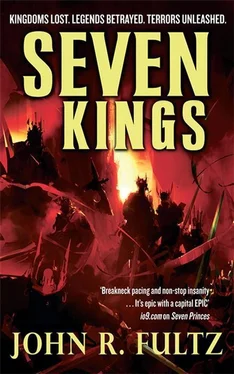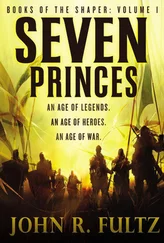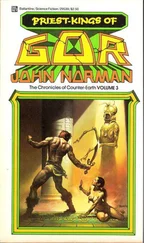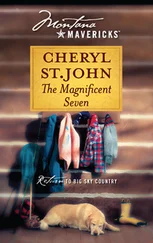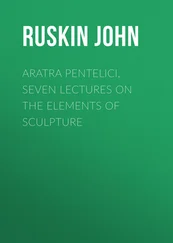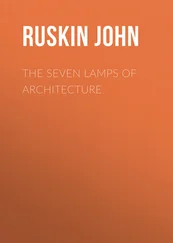John Fultz - Seven Kings
Здесь есть возможность читать онлайн «John Fultz - Seven Kings» весь текст электронной книги совершенно бесплатно (целиком полную версию без сокращений). В некоторых случаях можно слушать аудио, скачать через торрент в формате fb2 и присутствует краткое содержание. Жанр: Фэнтези, на английском языке. Описание произведения, (предисловие) а так же отзывы посетителей доступны на портале библиотеки ЛибКат.
- Название:Seven Kings
- Автор:
- Жанр:
- Год:неизвестен
- ISBN:нет данных
- Рейтинг книги:3 / 5. Голосов: 1
-
Избранное:Добавить в избранное
- Отзывы:
-
Ваша оценка:
- 60
- 1
- 2
- 3
- 4
- 5
Seven Kings: краткое содержание, описание и аннотация
Предлагаем к чтению аннотацию, описание, краткое содержание или предисловие (зависит от того, что написал сам автор книги «Seven Kings»). Если вы не нашли необходимую информацию о книге — напишите в комментариях, мы постараемся отыскать её.
Seven Kings — читать онлайн бесплатно полную книгу (весь текст) целиком
Ниже представлен текст книги, разбитый по страницам. Система сохранения места последней прочитанной страницы, позволяет с удобством читать онлайн бесплатно книгу «Seven Kings», без необходимости каждый раз заново искать на чём Вы остановились. Поставьте закладку, и сможете в любой момент перейти на страницу, на которой закончили чтение.
Интервал:
Закладка:
Lyrilan was wise enough to know that he was no true sorcerer. Yet he stood well inside the gateway to a storehouse of ancient knowledge that would forever separate him from his fellow man. He spoke enough of the dead languages to understand their power. He had grown adept at singing these ancient songs of blood, death, and wisdom.
He was no longer Lyrilan the Scholar. He was Lyrilan, Son of Dairon. Soon he would be Emperor of Uurz. He was no sorcerer. He was only a man who commanded some small portion of the knowledge that other men had owned long before him.
He left the scented garden and retired to his private chamber, where the final two Books of Imvek waited heavy with secrets.
Epilogue
The sands of the desert were white as powdered bone. Sages in distant lands claimed these sands were indeed the crumbled bones of Men and monsters, ancient hosts whose ceaseless warring drained the land of all its green and growing things. The name of these wars and the nations who fought them were lost in the sunken hollows of time. Only the desert of white sand remained, forever burning beneath the unforgiving sun.
Near the center of the white waste lay the rotting stones of a city older than memory. It shared the pristine hue of the desert, stubs of towers and fragmented walls sprouting from the dunes like pallid fungi. Alabaster domes sat cracked and empty, while rivers of dust filled the streets and drowned the prehistoric plazas. Monolithic columns stood scattered and broken, jagged teeth knocked from a God’s roaring mouth to lie in ash. A few soaring effigies of forgotten Kings still stood in the smothered city, their faces worn to blank masks by eons of wind and driving sand. Colossal temples lay in jumbled piles of rock. Somewhere in the midst of the devastation the curving ribs of a great baroque palace rose from the dunes, a skeletal memory of what was once a glory upon the face of the earth.
The winds sang wordless refrains of loneliness and death. In crypts beneath tons of sand, the mummified remains of the city’s former masters lay in the grip of eternal peace. The world had died and been reborn twice over since the Princes and Princesses of the nameless city walked beneath the stars. The shards of broken magnificence lay among the toppled ramparts of the bone-white city, which lay at the heart of the bone-white desert.
Yet today there was movement among the stillness of ages.
From the direction of the ruined palace an odd conveyance glided through the sandy streets. It resembled a carriage in which the nobles of antique kingdoms might ride. Its four great wheels and oblong body were conglomerations of bleached bones, welded together by some obscure artistry. Jawless human skulls sat upon each of its four corners, and at the center of each spoked bone-wheel.
The skeletons of four once-great horses pulled the carriage, their naked bones glittering in the sunlight. The tack and harness that held them to the carriage were likewise formed of interlinked bones. The fleshless horses ran without instinct, fatigue, or hunger. They were dead things, products of an elder world that would never rise again. They had lain in the vault of a disremembered King whose favorite steeds were buried with him long before scribes began to record the movements of history.
The skeleton stallions pulled the pale carriage rattling from the ruins into the blinding glare of open desert. They ran throughout the day and did not once pause, not even when the sun had set and blankets of frost settled upon the cacti and rocky crags of the wasteland. The carriage sped across the dunes by the light of a silvery moon. When the sun rose to bake the white plain again, the unliving steeds did not slow their pace.
There was no window set into the walls of the bone carriage, only a single door which never opened. Nor did the carriage stop for food, drink, or any other comforts. It flew like the wind itself across the sea of white sand, between forests of tapered obelisks, between the walls of winding ravines, on and on across a realm of everlasting heat.
After many days the carriage rolled to the summit of a weedy ridge, then down onto a green and yellow plain. Far to the north a ridge of sharp mountain peaks gleamed purple and gray, but the carriage of bones raced eastward without a moment’s pause. The hooves of the equine skeletons ate up the soft ground and sent clods of earth flying above its churning wheels. It rushed toward a wide lazy river; the bone horses galloped across the warm water as if it had frozen to solidity. Later the plain began to sprout herds of wild oxen, flocks of crimson waterbirds, and isolated copses of trees heavy with wild fruits. The carriage did not stop for its passengers to pick fruit or bathe in the gentle waters of brook and stream.
It rolled on, constant as death.
Next the conveyance passed through a pleasant land of farming villages. None of the field workers or shepherds at their flocks noticed the passing of four skinless horses, or the strange burden they pulled. Following a day and a night of traveling through green and fertile valleys dotted with hamlets, the pale carriage came to a broad road, unpaved yet well maintained. This road led to the gates of many a walled township where simple folk worked at wells, gardens, orchards, and shops. None of them saw the carriage or the horses, unless it was glimpsed like a swift shadow in the corner of an eye. It moved through each community like a chill wind, leaving no traces but for a coolness on the skin, a shudder in the bones of the living.
At last the walls and spires of a great city rose to dominate the horizon. The pale carriage raced on toward the massive gates. The road was now paved with millions of six-sided flat stones. The dead steeds hurtled across the centuries-old roadway toward the purple stones of the steaming, smoking metropolis. Spires rose from the city’s outer wall, which was so great in circumference the carriage might have traveled a whole day about it. The wall stood taller than the mast of a great warship, and so thick that each of its eight gates opened upon a long tunnel lined with platforms full of armored guards. These voiceless legions held spears of ornate design, and visors like the beaks of hawks disguised their faces.
In the shadow of the purple walls camped a great host, millions of warriors moving about in precise formations. The constant glinting of spear, shield, and mail gave the city the semblance of an island surrounded by a sun-kissed sea. Yet the true sea lay some distance away, at the end of the green river flowing through the city’s eastern quarter.
The legions of soldiers looked not at the bone carriage when it passed among them, nor did the galloping horses take any note of the various banners, standards, and nationalities that comprised this greatest of hosts. The carriage rushed like an icy wind from the ancient west.
It sped through the nearest gate in the early light of morning, the first of any vehicle to pass that way on this day. The gate’s sentinels did not see the skeleton horses or the melange of ancient bones that was the coach itself. Their eyes saw instead the splendid chariot of some wealthy landowner, flowing with dyed silk pennons and pulled by a team of spotted draft horses. Some lordling on his way into the city for a day of trade, dining, and business, followed by a night of revelry.
The brown-skinned folk of the city walked proudly about their flat-topped pyramids, their ziggurats of jade and granite, their ivory towers sculpted fine and delicate as the bodies of women. The carriage rolled alongside broad canals where riverboats carried their goods to market stalls and crowded bazaars.
Mastadons with gilded tusks lumbered through the streets with steepled pagodas of silk and gold upon their backs. Warrior maidens drove chariots pulled by spotted leopards, and trained gorillas carried barrels and crates for merchant lords and their companies. Two-legged Serpents carried mailed warriors on their hunched backs, fangs held in check by leathern hoods and the clever prodding of their masters. Most men of the city carried slim swords at their belts, straight of blade and patterned with precious stones. Noble folk reclined aboard slave-borne palanquins; they wore horned and gaudy headdresses above painted faces.
Читать дальшеИнтервал:
Закладка:
Похожие книги на «Seven Kings»
Представляем Вашему вниманию похожие книги на «Seven Kings» списком для выбора. Мы отобрали схожую по названию и смыслу литературу в надежде предоставить читателям больше вариантов отыскать новые, интересные, ещё непрочитанные произведения.
Обсуждение, отзывы о книге «Seven Kings» и просто собственные мнения читателей. Оставьте ваши комментарии, напишите, что Вы думаете о произведении, его смысле или главных героях. Укажите что конкретно понравилось, а что нет, и почему Вы так считаете.
